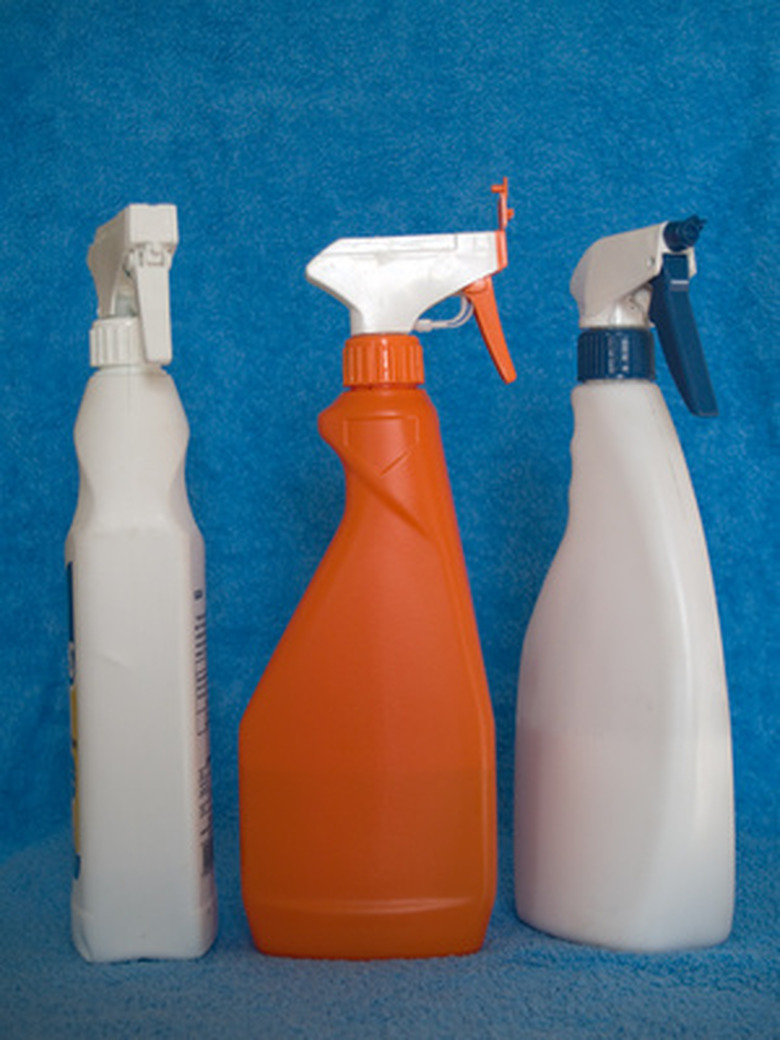Why Are Household Ammonia & Vinegar Used As Cleaning Agents?
Ammonia and vinegar are two commonly used cleaning supplies. They work because they can clean a wide variety of surfaces effectively and because they don't contain a lot of dangerous chemicals. Basic chemical principles explain how they clean your house, and they don't cost very much to produce.
Vinegar
Vinegar
Vinegar is created by fermentation, which turns natural sugars into acids. That acidic quality allows it to break down grease, germs and moldy food particles, cutting through them very quickly. Grocery stores sell vinegar with a specific amount acidic content, as dictated by the federal government. The Food and Drug Administration requires an acidity of at least 4 percent, and most commercial brands range between 4 and 7 percent. That's still a powerful mixture, and you can cut vinegar with water while still making a strong cleaning solution.
Ammonia
Ammonia
Ammonia is an alkaline, or base, product, which is the opposite of an acidic product such as vinegar. It appears naturally in the soil, arising naturally from decomposing organic matter. Even though it is an alkaline and not an acid, it carries corrosive properties that, like vinegar, can break down grease and grime very quickly. Like vinegar, it can be mixed with water, allowing you to dilute its strength to fit the task at hand. Commercial ammonia cleaning products typically mix the ammonia with water and contain about 5 to 10 percent pure ammonia.
Safety
Safety
Vinegar is biodegradable and won't harm the environment in any way. Indeed, many types of vinegar are edible, which increases its desirability as a cleaning product. Ammonia carries a few additional safety concerns; in high concentrations, it can burn flesh and eyes. Its use also creates fumes, which can cause irritation of the throat and lungs. Always use ammonia in a well-ventilated area — with windows open, if possible — never mix ammonia with cleaning bleach; it can cause a dangerous reaction. Some people prefer vinegar to ammonia as a cleaning agent because it is safer.
Mixing
Mixing
While there is no real danger in mixing ammonia and vinegar, it's often counterproductive. Because vinegar is acidic and ammonia basic, they cancel each other out, essentially creating salt water and robbing both components of their cleaning properties.
